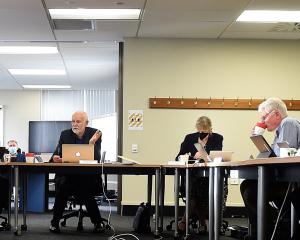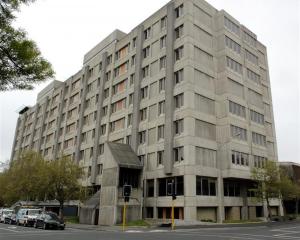A breast cancer treatment trial which has achieved significant success in the North Island may be implemented by the Southern District Health Board.
Fast Forward accelerates the radiation oncology treatment given to suitable early stage breast cancer patients, so they receive 15 doses of radiation over a span of three weeks.
The technique was first developed in England, and is now being trialled in MidCentral and two other DHBs.
MidCentral Regional Cancer Treatment Service radiation oncologist Kim Lohlun said patients seen at the Palmerston North service who had gone through Fast Forward treatment had not experienced more side effects than other patients, and treatment results had been positive.
"Because it is quite a new trial we implemented it on much stricter criteria and only accepted very early stage patients considered to be low risk.
"We have treated about 40 patients since October and they are all doing well."
The purpose of Fast Forward was twofold: to ensure patients were treated earlier and faster to improve their prognosis, and also to help reduce reduce waiting lists, Dr Lohlun said.
"It does have the potential to decrease waiting times, but if your waiting times are due to staff shortages because you are waiting to see a doctor, or because there is no treatment time available on a machine, it cannot help in that sense ... but if you had a lot of need and limited resources it really could help."
The SDHB has lengthy waiting lists for breast cancer treatment, and recently issued a request for proposal for up to 200 breast and prostate cancer cases to be taken on by other health providers.
Chief executive Chris Fleming said the board was keen to implement Fast Forward as soon as possible.
"It will ultimately improve treatment capacity and reduce the number of visits to the hospital."
However, he did not expect the treatment to improve the SDHB’s waiting list situation, as the lists related to first specialist appointments and Fast Forward did not affect how quickly patients could be seen, Mr Fleming said.
"However, it does allow some patients to receive faster treatment and ultimately it will allow us to expand the number of treatments we can provide," he said.
"We do not have capacity issues with our machines and so would not change waiting times."
The SDHB had to develop plans for use of its linear accelerator machines and have them validated before progressing Fast Forward, Mr Fleming said.
Dr Lohlun said MidCentral’s Fast Forward trial had just had its first-six month review, and clinicians were considering expanding it to more patients.
"If a patient is working or don’t want to travel too much they have been very interested in the programme."











